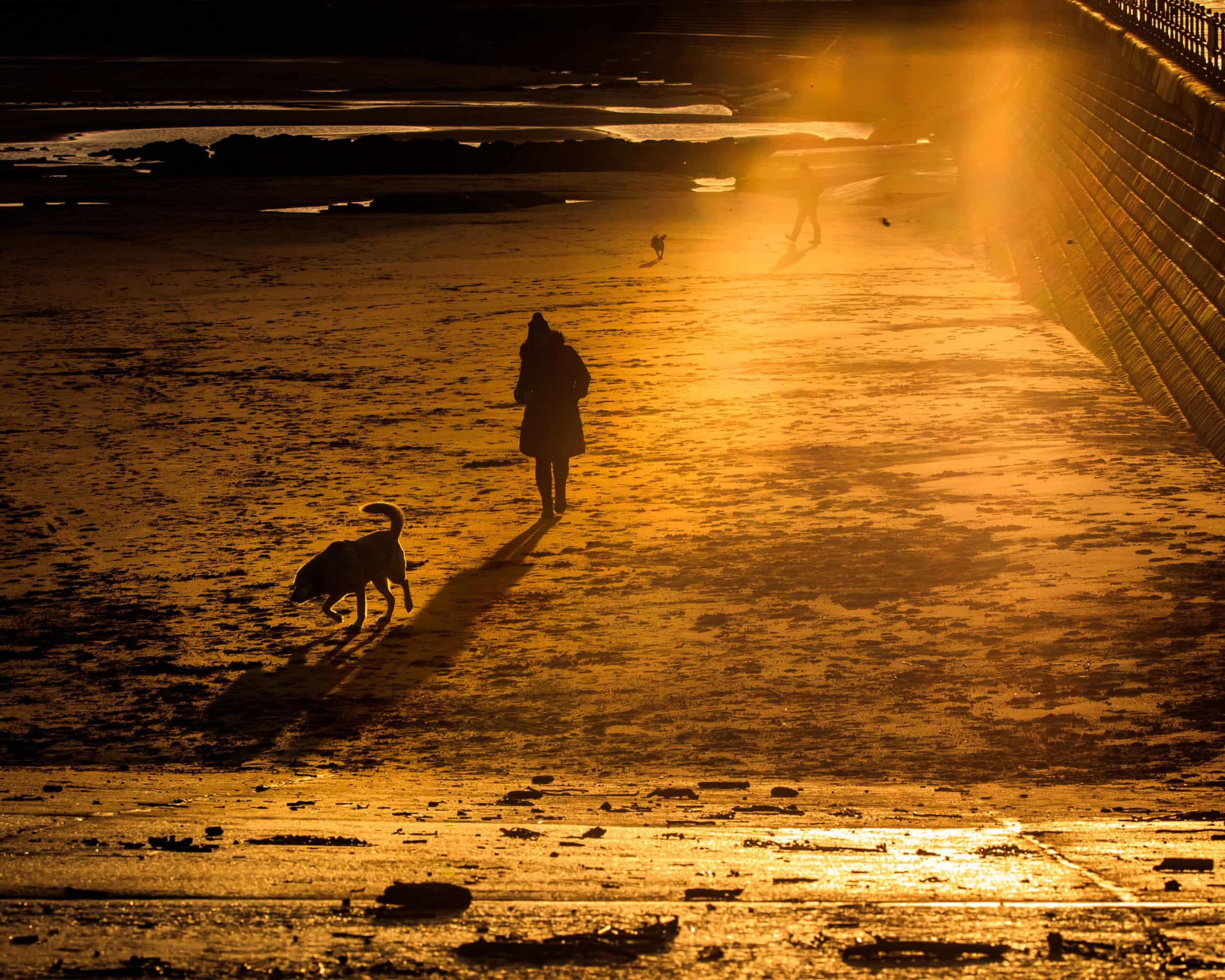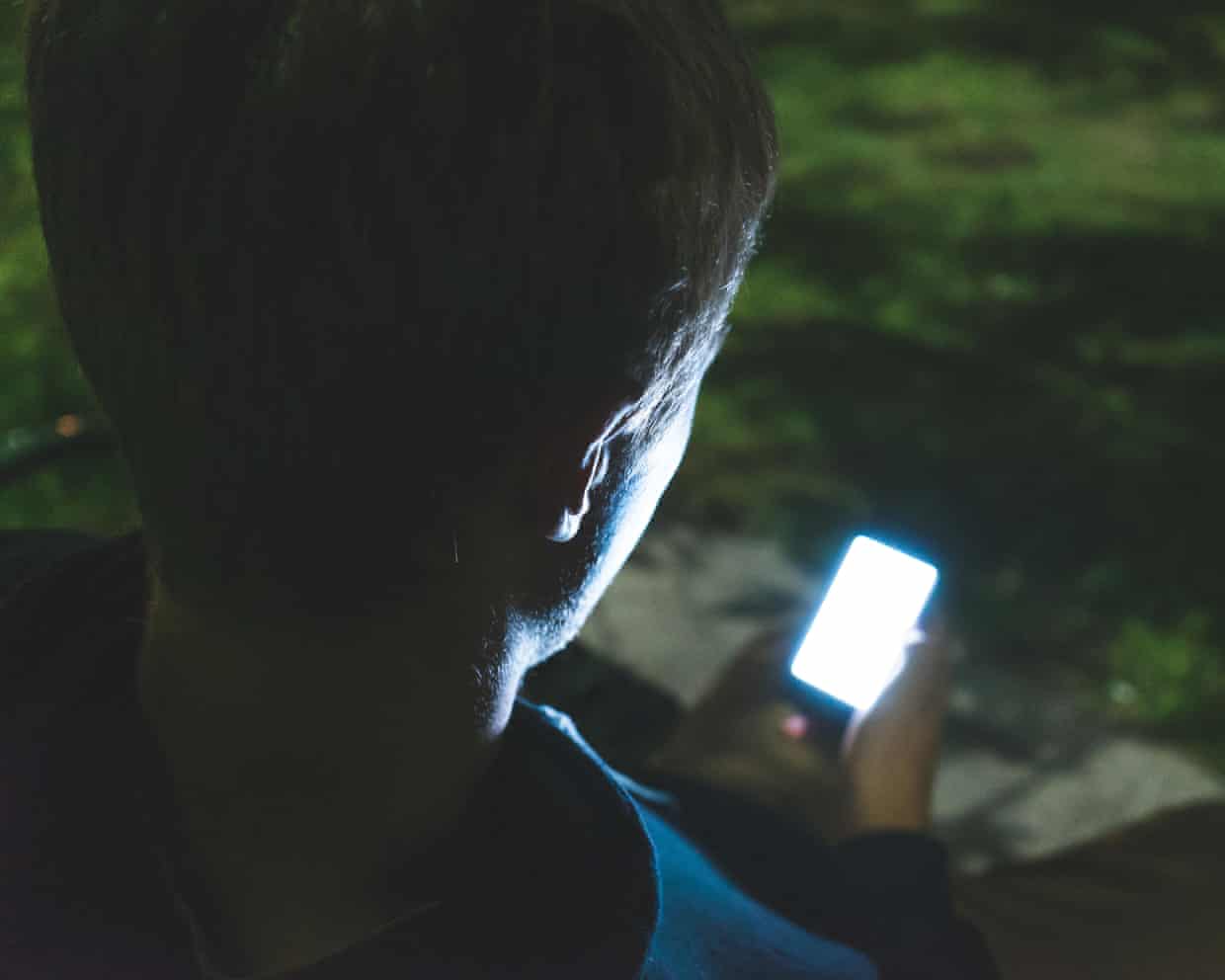How scientists are shining light on the biology behind seasonal affective disorder

Researchers tracking large cohorts are discovering the effects of sleep, light and therapy on people impacted by winter’s arrivalFor some, the darkening days of autumn bring more than the annual ritual of reviving woolly jumpers and turning on the central heating.As the evenings close in and the mornings grow murky, energy ebbs and a heavy sadness settles in.Although seasonal affective disorder (Sad) was only formally recognised by psychiatrists in the 1980s, the link between the seasons, mood and vitality has long been observed.The Yellow Emperor’s Classic of Medicine – a Chinese text from roughly 300BC – described how the seasons affect all living things.It advised that in winter, one should “retire early and get up with the sunrise”, keeping “desires and mental activity quiet and subdued, as if keeping a happy secret”.
Today, scientists are rediscovering how closely tuned our biology is to the seasons.According to Dr Cathy Wyse, a chancellor’s research fellow at the University of Edinburgh, the biggest advance over the past decade “has been the realisation that seasonal changes in human mood are probably endogenous – that they’re part of our physiology”.Large-scale resources such as the UK Biobank have transformed this area of research, allowing scientists to track seasonal patterns across hundreds of thousands of people over many years – something that was previously impossible.However, where to draw the line between normal winter sluggishness and clinical depression is not straightforward.Sad is recognised as a subtype of major depression or bipolar disorder, defined by its predictable seasonal pattern: symptoms typically begin in autumn or winter and lift in spring.
Alongside typical signs of depression, people often sleep longer, feel lethargic and want to eat more, particularly carbohydrates.The triggers of these changes are still being investigated, but they are almost certainly linked to reduced daylight.Light is the key regulator of our internal body or circadian clock, influencing the timing of hormone release, alertness and mood.Without sufficient daylight – especially when combined with too much artificial light in the evenings – these rhythms can drift out of sync with the external world.Some people may be more sensitive to this shift than others.
Wyse and her colleagues are studying seasonal effects in bipolar disorder, where manic episodes often peak in spring and depression tends to be more common in the darker months.“We suspect that people with bipolar disorder may be very sensitive to light and seasonal cues, and that’s triggering their symptoms,” said Wyse.Even among those without clinical depression, many people experience a milder seasonal dip in mood, known as subsyndromal Sad or “the winter blues”.In the UK, an estimated one in five people are affected, though only about 2% experience full Sad.Yet, seasonal biology extends far beyond mood.
Researchers have found fluctuations in the expression of more than 4,000 protein-coding genes in white blood cells and fat, along with changes in the cellular composition of blood itself across the year.Wyse and her colleagues recently analysed four years of UK Biobank sleep data from half a million people.“We found that in winter, people tended to sleep longer and had increased sleeplessness – their sleep wasn’t so good as in the summer,” said Wyse, who will present these findings at the British Sleep Society conference in Brighton next week.However natural these seasonal changes may be, society still expects people to carry on as normal.Few of us can hibernate, however tempting that may sound.
The most effective antidote to the winter slump is light.Bright light therapy remains the gold standard for treating Sad, though timing and dosage are critical (see below).For those unable to manage a daily session in front of a light box, natural sunlight is a powerful substitute.Studies of Amish communities in the US – who spend more time outdoors and less time exposed to bright artificial light at night – show some of the lowest Sad rates recorded among Caucasian populations.By contrast, the prevalence in New York is about 4.
7%.Exposure to bright, natural light early in the day helps to synchronise the circadian clock and suppress lingering melatonin, a night-time hormone that may make a person feel groggy.Light also has a direct alerting effect: one study found that an hour of blue-enriched light boosted reaction times more than the equivalent of two cups of coffee.But light isn’t the whole story.Cognitive behavioural therapy tailored for Sad can be as effective as light therapy, helping people reframe their relationship with winter rather than just manage symptoms.
Winter will come regardless,By shifting how we think about it, we can reclaim some joy from the darker months,Seek the morning sun: Even on grey days, step outside as early as possible,Daylight resets your circadian clock, improves alertness and suppresses melatonin,Early morning light is especially powerful.
Try a light box: Brightness levels are measured in lux,A typical Sad lamp will emit light at about 10,000 lux – 20 to 40 times brighter than typical office lighting, and roughly equivalent to outdoor light on an overcast summer’s day,Sit in front of it for 20–30 minutes soon after waking,Check your sleep habits: Stick to regular sleep and wake times, avoid screens late at night and keep evening lighting warm and dim,This helps prevent your internal rhythms from drifting.
Get outside – properly: Even on a cloudy day in January, outdoor light is roughly 10 times brighter than indoors.Aim for at least an hour a day, ideally combining it with something enjoyable: a walk, a coffee in the park or a kick-about with friends.Plan winter pleasures: Reframe thoughts such as “I hate winter” into “winter is harder, but I can plan around it”.Embrace cosy rituals, such as candles, hot chocolate or warm baths and schedule social or outdoor activities, such as cold-water dips or winter hikes.Know when to seek help: If mood, sleep or motivation problems persist for weeks or interfere with daily life, speak to a GP or mental health professional.
Sad is treatable.In the UK, the charity Mind is available on 0300 123 3393 and Childline on 0800 1111.In the US, call or text Mental Health America at 988 or chat 988lifeline.org.In Australia, support is available at Beyond Blue on 1300 22 4636, Lifeline on 13 11 14, and at MensLine on 1300 789 978

Apple reports record iPhone sales as new lineup reignites worldwide demand
Apple reported its first quarterly earnings since the release of its new lineup of iPhones on Thursday, beating Wall Street analysts’ expectations. The company showed steady financial growth and a strong bottom line despite slow progress on artificial intelligence. The report comes just days after the company hit a $4tn market value for the first time.“Today, Apple is very proud to report a September quarter revenue record of $102.5 billion, including a September quarter revenue record for iPhone and an all-time revenue record for Services,” Apple’s CEO, Tim Cook, said in a statement

Amazon reports strongest cloud growth since 2022 after major outage
Amazon has made its first financial disclosures since the disastrous outage suffered by its cloud computing division that brought everything from smart beds to banks offline.In spite of the global outage, Amazon Web Services has continued to grow, and this quarter reported a 20% increase in revenue year over year. Wall Street estimated that AWS would bring in $32.42bn in net sales in the third quarter, with the company reporting actual revenue of $33bn.“AWS is growing at a pace we haven’t seen since 2022,” CEO Andy Jassy said in a statement accompanying the earnings report

OpenAI thought to be preparing for $1tn stock market float
OpenAI is reportedly gearing up for a stock market listing valuing the company at $1tn (£760bn) as soon as next year, in what would be one of the biggest ever initial public offerings.The developer behind the hit AI chatbot ChatGPT is considering whether to file for an IPO as soon as the second half of 2026, according to Reuters, which cited people familiar with the matter. The company is thought to be looking to raise at least $60bn.A stock market float would give OpenAI another route to raising cash, supporting ambitions by the chief executive, Sam Altman, to splash trillions of dollars on building datacentres and other forms of infrastructure needed for the rapid buildout of its chatbots.During a staff livestream on Tuesday, Altman was reported to have said: “I think it’s fair to say it [an IPO] is the most likely path for us, given the capital needs that we’ll have

Google Pixel 10 Pro Fold review: dust-resistant and more durable foldable phone
Google’s third-generation folding phone promises to be more durable than all others as the first with full water and dust resistance while also packing lots of advanced AI and an adaptable set of cameras.The Guardian’s journalism is independent. We will earn a commission if you buy something through an affiliate link. Learn more.The Pixel 10 Pro Fold builds on last year’s excellent 9 Pro Fold by doing away with gears in the hinge along its spine allowing it to deal with dust, which has been the achilles heel of all foldable phones until now, gumming up the works in a way that just isn’t a problem for regular slab phones

Teenage boys using ‘personalised’ AI for therapy and romance, survey finds
The “hyper-personalised” nature of AI bots is drawing in teenage boys who now use them for therapy, companionship and relationships, according to research.A survey of boys in secondary schools by Male Allies UK found that just over a third said they were considering the idea of an AI friend, with growing concern about the rise of AI therapists and girlfriends.The research comes as character.ai, the popular artificial intelligence chatbot startup, announced a total ban on teens from engaging in open-ended conversations with its AI chatbots, which millions of people use for romantic, therapeutic and other conversations.Lee Chambers, the founder and chief executive of Male Allies UK, said: “We’ve got a situation where lots of parents still think that teenagers are just using AI to cheat on their homework

Microsoft reports strong earnings as Azure hit by major outage
Microsoft blew off concerns of overspending on AI on Wednesday, reporting elevated earnings even as it faced an outage of its cloud computing service, Azure, and its office software suite, 365. The strong earnings report comes a day after a deal with OpenAI pushed the value of the tech giant to more than $4tn.After its Xbox and investor relations pages went down, the company issued a statement that said: “We are working to address an issue affecting Azure Front Door that is impacting the availability of some services.”The outage did not dampen the software giant’s financial outlook. The company reported first-quarter earnings of $3

Victims robbed of £4bn in ‘insulting’ car loan redress scheme, say claims firms

Delivery firm DPD accused of ‘revenge’ sacking drivers who criticised pay cuts

Knee-jerk corporate responses to data leaks protect brands like Qantas — but consumers are getting screwed

Ducking annoying: why has iPhone’s autocorrect function gone haywire?

Saracens Women enjoy World Cup bounce with record crowd for derby

Coco Gauff’s serving troubles return in WTA Finals defeat against Pegula